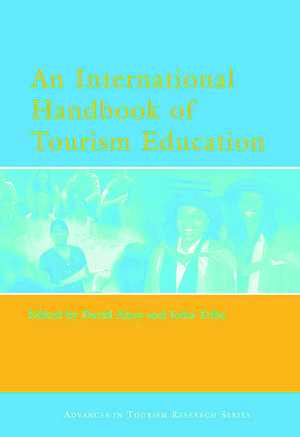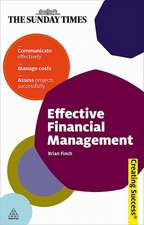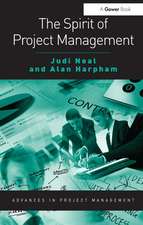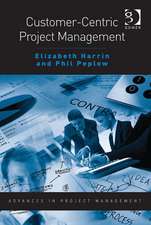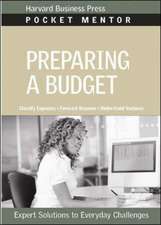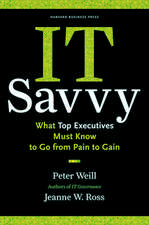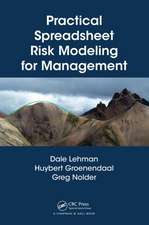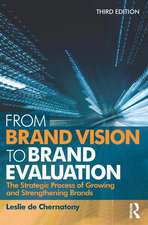An International Handbook of Tourism Education
Editat de David Airey, John Tribeen Limba Engleză Hardback – 11 oct 2005
The book brings together expert contributors from around the world to present current thinking and practice about what is now a major element of education provision world-wide. It is structured round four key themes:
- Curriculum
- International perspective
- Teaching, learning and assessment
- Resources, progression and quality
Its global survey of tourism education offers a comprehensive basis for comparative review. In addition to setting out the development and current provision of tourism education it also addresses cutting edge issues such PhD education, non-formal education, cultural issues in learning, research and teaching, e-learning and e-assessment. It offers practical advice for the design, delivery, evaluation and resourcing of courses and concludes with a reflective agenda of issues for the future.
Preț: 532.10 lei
Preț vechi: 1034.89 lei
-49% Nou
Puncte Express: 798
Preț estimativ în valută:
101.82€ • 108.88$ • 84.89£
101.82€ • 108.88$ • 84.89£
Carte tipărită la comandă
Livrare economică 10-24 aprilie
Preluare comenzi: 021 569.72.76
Specificații
ISBN-13: 9780080446677
ISBN-10: 0080446671
Pagini: 540
Ilustrații: illustrations
Dimensiuni: 174 x 246 x 35 mm
Greutate: 1.16 kg
Ediția:1
Editura: Taylor & Francis
Colecția Routledge
Locul publicării:Oxford, United Kingdom
ISBN-10: 0080446671
Pagini: 540
Ilustrații: illustrations
Dimensiuni: 174 x 246 x 35 mm
Greutate: 1.16 kg
Ediția:1
Editura: Taylor & Francis
Colecția Routledge
Locul publicării:Oxford, United Kingdom
Public țintă
It is an essential reference work for all tourism departments and libraries; those planning, developing and delivering tourism courses; those studying courses with a focus on education issues related to tourism; those studying education per se, particularly linked with vocational education, and those charged with quality review and enhancement.Cuprins
Introduction. (J. Tribe, D. Airey). Growth and Development. (D. Airey). Overview of Research. (J. Tribe) Curriculum. Tourism, Knowledge and the Curriculum. (J. Tribe). Curriculum Theory and Practice: A Case in On-line Learning. (S. Elliott, G. Smith). Curriculum, Development and Conflict: A Case Study of Moldova. (J. Tribe). Work Experience and Industrial Links. (G. Busby). International Tourism Education. Australasia. (B. King, S. Craig-Smith). Brazil and Latin America. (S. Leal, M. Auxiliadora Padilha). The Caribbean. (A. Lewis). China. (Wen Zhang, Xixia Fan). East Africa. (Mayaka Melphon). Germany. (W. Freyer et al.). India. (Shalini Singh, Tej Vir Singh). The Netherlands. (M. Venema). North America. (S. Hudson). Slovenia. (T. Mihalic). South Africa. (M. Saayman). United Kingdom. (D. Airey). Teaching, Learning and Assessment.Teaching. (D. Stergiou). The Student Experience. (E. Wickens, A. Forbes). Issues in Teaching and Learning. (B. Wheeller). Assessment. (N. Beckett). Undergraduate Dissertations. (K. Smith). Cultural Issues in Learning. (P. Barron). E-Learning and E-Assessment. (M. Sigala). Teaching and Research. (F. Jordan). Community Education. (S. Cole). Resources, Progression and Quality. Teachers. (M. Stuart-Hoyle). Learning Resources. (L. Bibbings). Careers and Employment. (A. Ladkin). Quality Assurance. (D. Robbins). Postgraduate and PhD Education. (D. Botterill, T. Gale). Postscript. Practical Issues for Design, Delivery, Evaluation and Resourcing of Courses. (M. Moir, L. Hodgkins). Issues for the Future. (D. Airey, J. Tribe).
Recenzii
"...comprehensive, strong on the state of the art, detail and practice of tourism education in the twenty first century...standard reference volume for the subject"
--Chris Cooper, The University of Queensland, Australia for Tourism Recreation Research Vol. 31, No. 2, 2006
"...a considerable compliation of discussion, deliberation and debate on a wide range of issues in tourism education."
--K.B. Godfrey, UHI Millennium Institue, Scotland for Tourism Management Vol. 28, No. 1, 2007
--Chris Cooper, The University of Queensland, Australia for Tourism Recreation Research Vol. 31, No. 2, 2006
"...a considerable compliation of discussion, deliberation and debate on a wide range of issues in tourism education."
--K.B. Godfrey, UHI Millennium Institue, Scotland for Tourism Management Vol. 28, No. 1, 2007
Descriere
As tourism matures as an academic subject and the number of tourism higher education providers continues to expand world-wide, there is an increasing interest in its educational aspects. At the same time the development of research into education issues related to tourism means that there is now a developing literature on the subject. This international handbook offers a timely evaluation of the sate of the art of tourism higher education.
The book brings together expert contributors from around the world to present current thinking and practice about what is now a major element of education provision world-wide. It is structured round four key themes:
- Curriculum
- International perspective
- Teaching, learning and assessment
- Resources, progression and quality
Its global survey of tourism education offers a comprehensive basis for comparative review. In addition to setting out the development and current provision of tourism education it also addresses cutting edge issues such PhD education, non-formal education, cultural issues in learning, research and teaching, e-learning and e-assessment. It offers practical advice for the design, delivery, evaluation and resourcing of courses and concludes with a reflective agenda of issues for the future.
The book brings together expert contributors from around the world to present current thinking and practice about what is now a major element of education provision world-wide. It is structured round four key themes:
- Curriculum
- International perspective
- Teaching, learning and assessment
- Resources, progression and quality
Its global survey of tourism education offers a comprehensive basis for comparative review. In addition to setting out the development and current provision of tourism education it also addresses cutting edge issues such PhD education, non-formal education, cultural issues in learning, research and teaching, e-learning and e-assessment. It offers practical advice for the design, delivery, evaluation and resourcing of courses and concludes with a reflective agenda of issues for the future.
